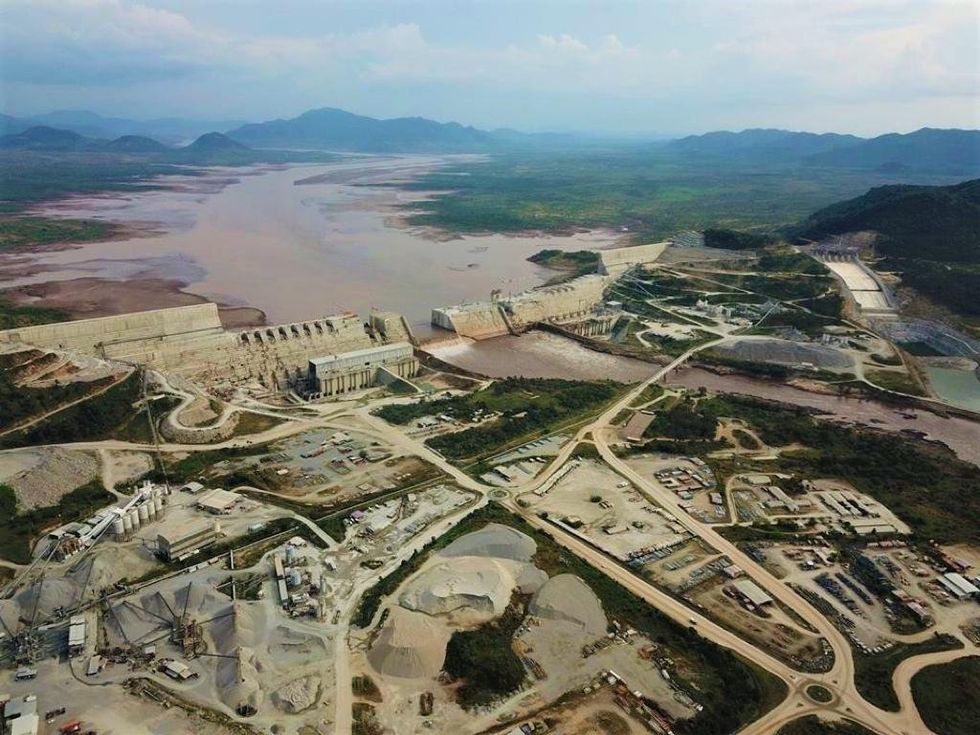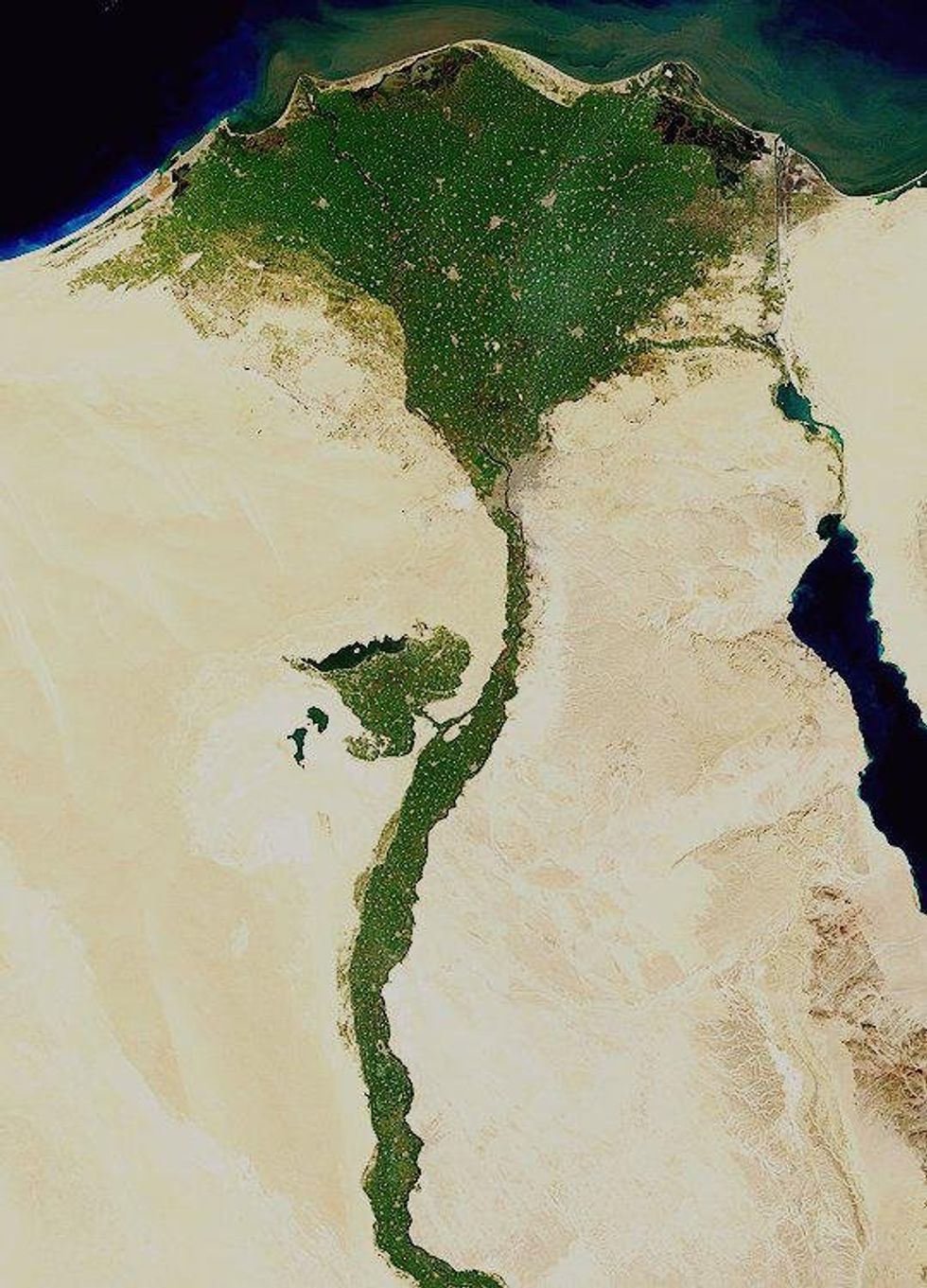Fresh water is an essential resource for any population. Not only is water necessary for the human body, but it's also required for almost any kind of agriculture or farming. At the end of the day, fresh, potable water is absolutely vital for any kind of life, and the conflict over the construction of the Grand Ethiopian Renaissance Dam has only affirmed that fact. This one dam's construction has locked two struggling nations of over a hundred million people into a conflict over fresh water that, from my angle, might only end in tragedy.
Let's wind the clocks back and set the scene.

The Grand Ethiopian Renaissance Dam began construction in 2011. With an estimated cost of nearly 5 billion U.S. dollars, the project was the largest single economic undertaking ever conducted by the Ethiopian nation. The dam would sit atop the Blue Nile, one of the Nile River's major tributaries, at the border with Sudan. The purpose was hydropower; the dam would use the flowing water of the Blue Nile to spin its turbines and generate enormous amounts of electricity that would provide a much-needed stability to the country's electrical grid and the excess power would be sold and exported to Ethiopia's neighbors to raise some revenue. As the construction continued over the next decade, the dam became a point of national pride for all Ethiopians; a rare symbol of unity in the fractured and impoverished country. Everything seemed to be ideal for Ethiopia, until Egypt entered the picture.
Despite the headwaters of the Nile reaching as far south as Ethiopia and even Uganda, Egypt has historically been considered the caretaker of the Nile River. In actuality, however, the river is more the caretaker of Egypt. Over 95 million Egyptians live in the Nile River Valley, functionally the only arable lands in the country. It isn't an overstatement to say that their lives depend on the river, and that any threat to it would be an existential threat to the Egyptian people. This is where Egypt takes issue with the Grand Ethiopian Renaissance Dam.

Despite Ethiopian guarantees that the dam would only improve the Nile's flow downstream, most experts agree that the effects of the construction of the dam would be catastrophic for the Egyptian people. If Ethiopian authorities were to fill the dam's reservoir to full capacity in five years — a common enough timetable for similar dams; it allows for a quicker return on investment — it would sacrifice a third of the Nile's flow before reaching Egypt proper, resulting in a potential loss of half of all Egyptian farmland. The consequences of such an action would be unlike anything ever seen before. Suffice it to say, millions of people would suddenly find themselves in a very, very rough spot.
Unsurprisingly, the Egyptian government has found this unacceptable. Unfortunately, Ethiopia has refused to negotiate. Although Egypt and Ethiopia have shown a willingness to cooperate in the past, both sides have now simply dug in their heels rather than work on a mutually beneficial solution; a solution that may be needed sooner rather than later as the dam has just been completed this month and the Ethiopian government is keen to begin filling the reservoir by the next. Egypt maintains support for a U.S. proposal on dam operations that is blatantly pro-Egyptian, while Ethiopia rejects what it sees as an unnecessary internationalization of the issue, preferring to keep discussions between the Nile nations, most of which support Ethiopia.

Time is running out. Despite all the diplomatic games, if the Egyptian government doesn't have what it considers to be a suitable plan regarding dam operations before the reservoir begins to fill, it will be forced to strike against Ethiopia or suffer a famine of biblical proportions. Conversely, the Ethiopian government has sunk an immense amount of its money into a project built within its territory to improve the lives of its people, and will defend its sovereignty against any invader as it has had to in the past. Both governments seem to, for once, have the best intentions for their own people, but are woefully inept at sitting down at a table and finding a compromise.
There is no right side in this situation. All we can do is hope that peace will prevail.













